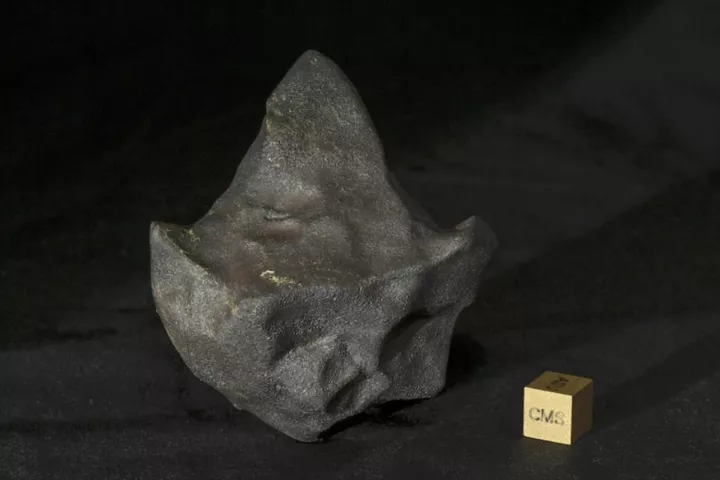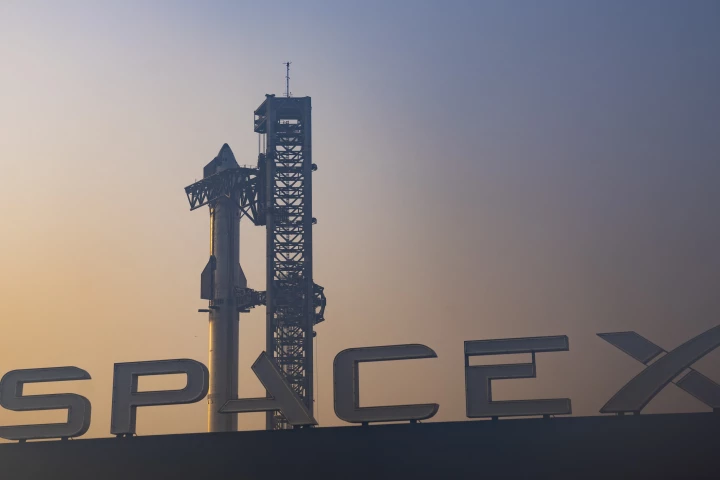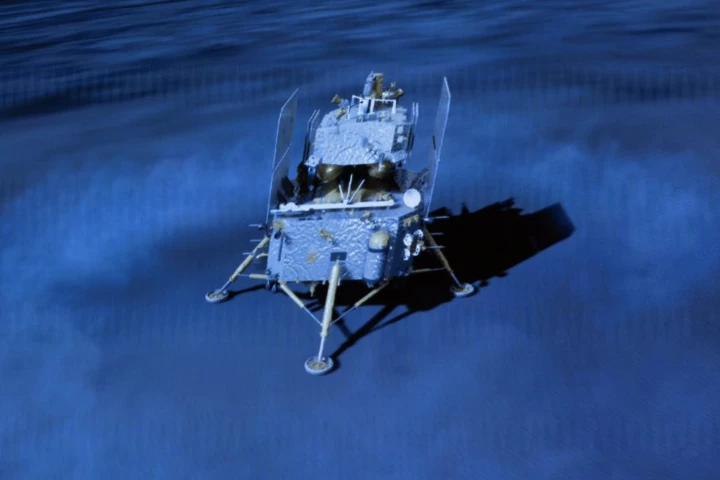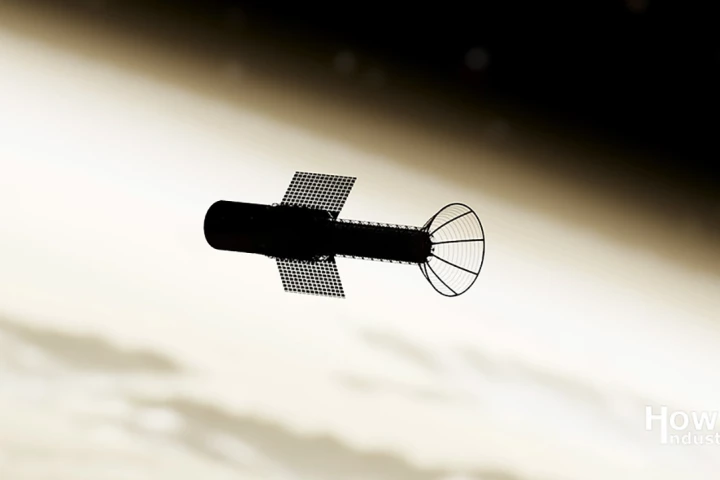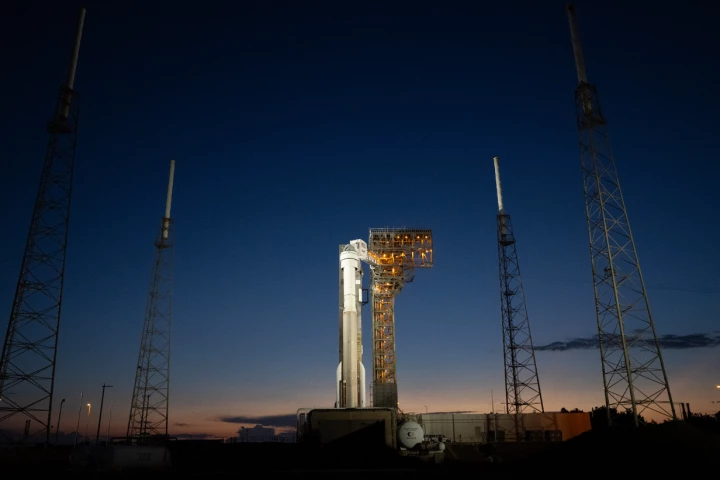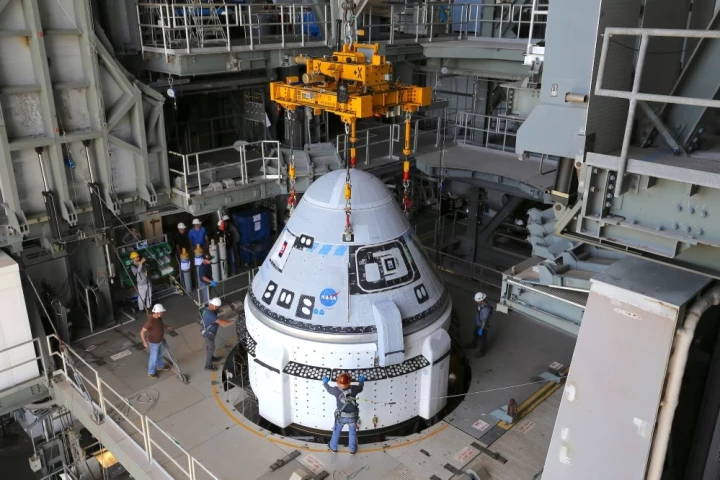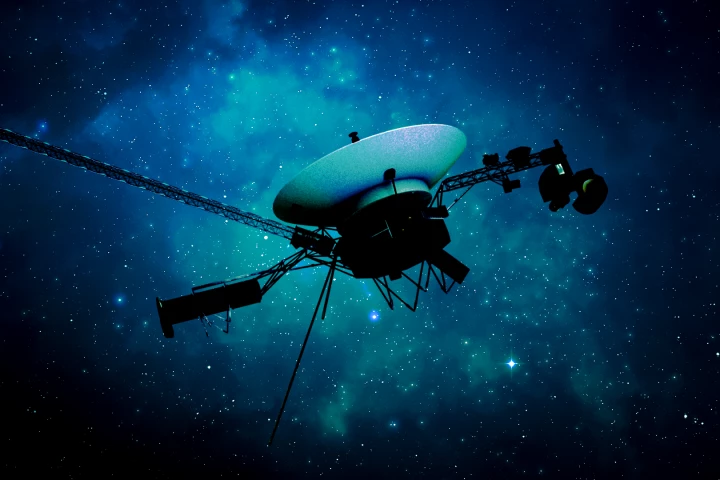Space exploration
-
One of the most studied space rocks of all time has surprised us again, with the "mudball meteorite" Aguas Zarcas having cruised around the solar system for two million years without as much as a scratch. It defies the "fragile" class it belongs to.
-
Apple TV+ has been producing top-shelf science fiction as a defining pillar of its offering – and it's putting together an impressive slate. From outright successes to grand artistic swing 'n' misses, here's our ranking of Apple's sci-fi TV, from worst to best.
-
Next time you're driving around on Mars and need to get your tire replaced, chances are good it'll look something like a revolutionary new version made by NASA and Goodyear. The mesh cage design can take a beating and roll right on.
-
The most abundant metal known to man is iron. It's everywhere. Not just on Earth, but in space as well. Astro engineers have just figured out how to use iron – or nearly any metal for that matter – as plasma rocket fuel.
-
A somewhat scorched Chang'e-6 return craft landed in Inner Mongolia yesterday, bringing with it the first rock and dust samples from the far side of the Moon – and hopes of unlocking some lunar secrets.
-
Starbase, located in Boca Chica, TX is getting a new upgrade called Starfactory – with a 100-million-dollar price tag and some incredibly ambitious goals – that's expected to be online this summer.
-
China's uncrewed Chang'e-6 has successfully landed on the far side of the Moon, where it will gather lunar rock and soil samples from the unexplored region for the first time in history. On-board cameras caught the moment it touched down.
-
NASA and Howe Industries are working on a new rocket to make the trip to Mars much more manageable. The Pulsed Plasma Rocket could boast 100,000 N of thrust, unlocking speeds of up to half a million mph to cut months off a return trip to the Red Planet.
-
Bridging fashion and functionality, SpaceX has revealed what its astronauts will be wearing on the first-ever private spacewalk in 2024. In a new video, the company details the features of the suit that will be space-tested on the Polaris Dawn mission.
-
Boeing's attempt to put two astronauts into orbit has been scrapped. At 8:33 pm EDT, the launch of the Starliner spacecraft was called off due to engineering problems with the oxygen release valve of the Centaur second stage of the Atlas V rocket.
-
Boeing's controversial Starliner crewed spacecraft is due to lift off on Monday, May 6 from Space Launch Complex-41 on Cape Canaveral Space Force Station in Florida at 10:34 EDT. Here's how you can watch all the drama unfold live.
-
We have to cut the 47-year-old space veteran some slack – it's faring much better than our 2019 laptops – but Voyager 1's five months of communicating nonsense to Earth may be over, thanks to Mission Control's 15-billion-mile remote IT fix.
Load More
